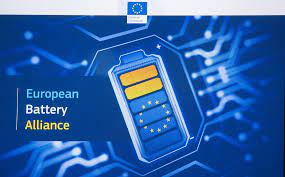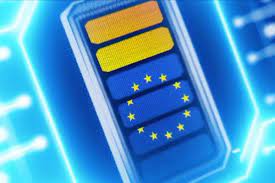TECHNOLOGY FOCUS
As the industry is pursuing ever-higher energy density, faster charging and lower cost, the current Li-ion technology platform based on liquid electrolytes faces is soon approaching the technical limits. A switch to solid-state electrolytes is on the horizon and is already now the subject of large research efforts.
This certification gives a high-level overview of the imminent switch to solid electrolytes in the battery industry and provides insight into the impact this will have on the industry. It provides you with information on the next-generation electrolytes for Li-ion and Lithium metal batteries, the solid electrolytes. You will understand why the shift to a solid electrolyte is necessary, which types of solid electrolytes exist, how they work, and their specific features and benefits. Lastly, you will understand how the electrolyte plays a key role in cell architecture, electrode manufacturing, and cell assembly.
_Sign22.png)

COURSE CONTENT
This certification empowers learners to:
• Give the basic build-up of Li-ion and lithium batteries and assign the relevant components with their purpose.
• List the main requirements for solid-state electrolytes.
• Compare ionic conductivity mechanisms through ceramics, polymer, and composite electrolytes.
• Give the challenges involved with integrating a solid-state electrolyte in a battery cell.
• Compare the thin-film battery technology against the classical Li-ion battery technology
WHO SHOULD ATTEND
The course in this certification is beneficial for chemical engineers, process engineers, battery and R&D professionals looking into next-generation battery technology. Also, anyone interested in understanding solid-state battery technology might find it useful.
In order to be able to follow and benefit from the Solid-State Batteries certification learners would need to be acquainted on a high level with the working principle of batteries and lithium-ion batteries in general.
The required time investment is around 3 hours on average, including the certification evaluation. The provided estimation of learner time investment is approximate and serves as an example. We recommend for course providers to assess the availability and needs of their target audience and adapt the course duration accordingly.
To succeed in Solid-State Batteries and receive a Certificate of Accomplishment, a learner needs to obtain a minimum score of 75 points in the certification assessment. This certification assessment serves as a test on the understanding of the course content by each learner. In-lesson quizzes are only meant for self-evaluation and do not count towards the final Certificate.

Course 1: Explore the fundamentals behind solid-state batteries to understand the potential and challenges behind these cutting–edge technologies
o Introduction to Solid-State Batteries
o Introduction to Solid-State Electrolytes
o Mechanisms of Ionic Conductivity in Ceramic and Polymer Electrolytes
o Cell Assembly with Solid-State Electrolytes
o Thin-Film Solid-State Batteries

